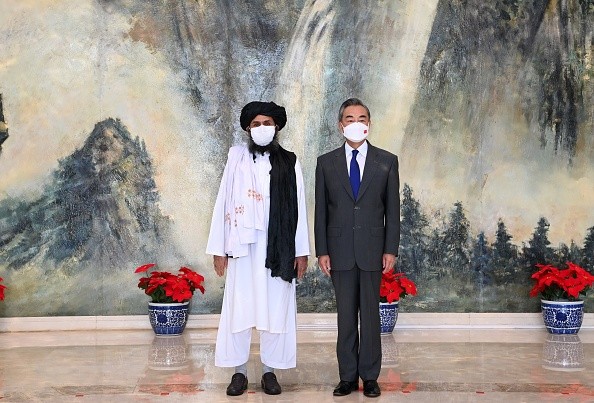China has pledged to keep its embassy in Afghanistan open and to boost humanitarian assistance to the war-torn nation, according to a Taliban spokesperson.

Stronger Relationship Between Taliban and China
In a recently published article in South China Morning Post, Wu pledged that China will continue diplomatic ties with the new government by keeping its embassy in Afghanistan open, according to Taliban spokesperson Zabiullah Mujahid, adding that their "relations would strengthen up as opposed to the past."
Following the Taliban's capture of Kabul on Aug. 15, the Islamist group is now faced with transitioning from insurgency to governmental authority. According to a Taliban spokesman, China is their most significant partner and provides them with a fundamental and exceptional chance since it is willing to invest and reconstruct Afghanistan.
Furthermore, The Taliban have said that Afghanistan would continue to engage in China's Belt and Road Initiative, expressing optimism for Beijing's investment and assistance in rebuilding the war-torn nation while pledging to safeguard Chinese interests, according to a published report in MSN News.
China To Increase Investment and Humanitarian Aid
The Taliban spokesperson said that China will continue and increase its investment and humanitarian efforts most especially in providing COVID-19 vaccines. However, Beijing did not yet confirm the claim of the Taliban, according to a published article in The Straits Time.
Last month, China condemned the U.S. decision's "hurried departure" from Afghanistan but said that it would be willing to communicate with Washington's leaders in order to avoid a humanitarian catastrophe amid the chaos escalating in the war-torn country.
Afghanistan is strategically situated and abundant in natural resources for China. While Beijing has long wanted to extend the China-Pakistan Economic Corridor (CPEC) into Afghanistan, owing to the country's unpredictable environment and China's concern of spillover effects from Afghanistan's instability, it has made little headway over the years.
China Did Not Yet Recognize Taliban Government
Beijing, on the other hand, has not recognized the Taliban as the de facto administration and is suspicious of the terrorist group's backing for Muslim-minority Uyghur separatists attempting to enter China's sensitive Xinjiang border province.
Although Beijing started evacuating Chinese people from the nation months ago as security worsened, China's embassy in Kabul remained open, according to a published report in Yahoo News. However, it is not yet clear how many Chinese citizens were evacuated from Afghanistan.
According to experts, a stable and cooperative government in Kabul would open the path for Beijing to expand its overseas development push. Meanwhile, the Taliban may see China as a vital source of investment and financial assistance.
Taliban Formed a New Government
In the midst of growing worldwide speculation over the new government's makeup, Taliban sources confirmed on Friday that Mullah Baradar, the movement's co-founder, would lead the new cabinet, which is scheduled to be presented on Saturday.
According to three sources, Baradar, who is in charge of the Taliban's political office, would be joined in key posts in the government by Mullah Mohammad Yaqoob, the son of the late Taliban leader Mullah Omar, and Sher Mohammad Abbas Stanikzai.
Related Article : Taliban, China to Work Closely in Reconstructing Afghanistan
© 2026 HNGN, All rights reserved. Do not reproduce without permission.








